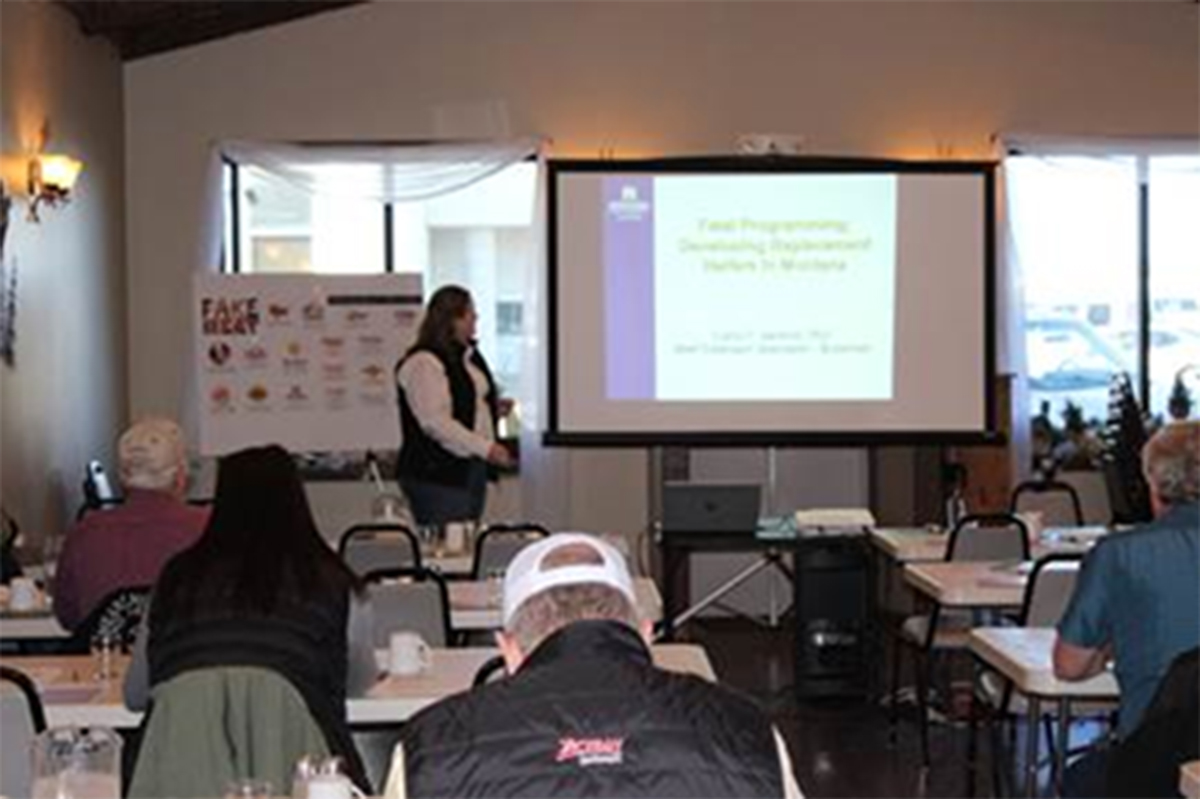
Phillips County
Producers hear concerns for future of livestock industry at Jim Schumacher Memorial Livestock Day
Published: 2020By Marko Manoukian
Forty producers listened to four presenters at the annual Jim Schumacher Memorial Livestock Day who highlighted industry changes and helpful tools.
Corbitt Wall discussed how the cattle market has evolved from driving herd to market and selling them as only finished cattle pen-side in the stockyards in the 1930s. Currently, we have a beef feedlot industry in warmer parts of the country, and he highlighted that 80% of the cattle are controlled by four major packers who have control over pricing from feedlot to packing plant. This leaves very few finished cattle sold under negotiated sales and negatively impacts price discovery for yearling and feeder calves as well.
Brett Crosby discussed beef basis, or the process of predicting prices. Crosby outlined how predicting with some accuracy is as important as pregnancy rate or weaning weight. He has developed a tool called beefbasis.com, where a producer can predict the futures price of a calf or yearling with just a few inputs into the free website, which will predict the value by computing the feeder cattle futures and future corn price.
Montana State University Extension Beef Specialist Carla Sanford, PhD, discussed preparation of cows for calving and fetal programming. Fetal programming is the simple recognition that events in utero can alter the offspring. By providing adequate energy and protein and minerals to the developing fetus, the resulting calf will be healthier.
Alison Van Eenennaam, UC Davis Extension Animal Geneticist, PhD, wrote in 2018 why cows may be getting a bad rap from alternative meat production. Her investigation identified Impossible Burger or Beyond Meat burger as plant-based, made of plant protein extracts which contain fats, binders, and added nutrients to at least meet the amounts of nutrients in meat. Some of these plant-based products have genetically engineered “heme” to make the burger bleed like meat. Plant-based meat production is separate from in-vitro or cultured meat, which is still a somewhat experimental process of cell separation and culturing, in an attempt to mass produce meat. She discussed the boldness and funding of the cultured meat industry. Van Eenennaam describes the process as the definition of “factory farming,” though currently there is not a cultured meat hamburger produced in the world.


